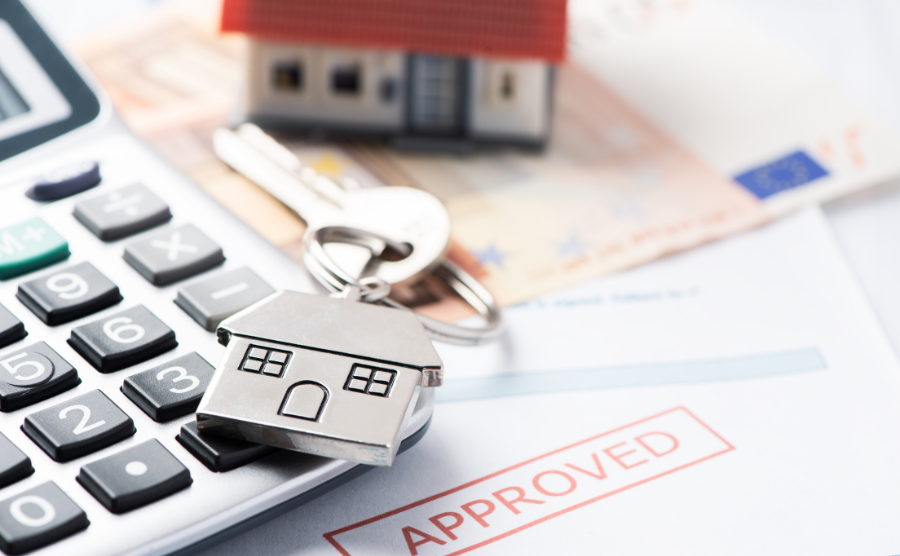Europe’s rising interest rates together with the fallout of Brexit and Covid lockdowns have caused a tightening of conditions in the French mortgage market, at least for UK and other international buyers. We answer some of the key questions for today’s borrowers across the Channel…
Are French banks still lending to foreign buyers of second homes?
Yes. Although it’s true that one or two French lenders have stopped lending to foreign non-residents in the past year or two. Most lenders have made it harder to borrow from them, however there are still plenty of banks willing to lend to qualifying second homebuyers.

Is it possible to get a French mortgage as an international buyer?
What sort of criteria is typical of French banks now?
For starters, the way banks work out affordability has got stricter. In short, they assess it on a client’s debt-to-income ratio (DTIR) and residual income. A DTIR of more than 33 per cent is deemed too high, so you need to prove you have at least two thirds of your monthly income left after all regular repayment obligations. This includes credit cards, debts or existing mortgages. The number of dependents you have will also affect the decision.
Many lenders now require proof of savings too, ie liquid cash in the bank, as a reassurance that borrowers can cover their mortgage repayments. This is typically one to two years’ worth. Some even make it a condition for borrowers to open a savings account and deposit a minimum amount with them. As a rule, French financial institutions are more conservative than UK banks and favour customers with a cautious approach to debt and proven ability to save. In addition, the typical minimum loan amount for non-residents borrowing 80-85 per cent is €250,000-€300,000, although certain individual cases could get lower.
Find homes in France via our property portal.
Do I still need life insurance for a French mortgage?
Yes. Borrowers in France are required to take out life insurance with a mortgage. Historically, lenders have insisted that clients take out a policy with them alongside their French mortgage. But banks are becoming increasingly flexible on this and allowing clients to search the market for more competitive premiums. Then, you can choose an insurer that requires less time-consuming medical tests (which often can hold up a loan application and subsequently the purchase). Your mortgage broker should be able to advise you of your best options.

Getting a mortgage in France is possible but some lenders are holding back
What sort of deals are available at the moment?
The French market includes varied and fixed-rate deals, as well as capital repayment, interest-only and mixed options. Longer terms of between 15 and 25 years are popular, with seven years about as low as people go. Fixed repayment remains the most common combination, while interest-only are scarcer and come with tighter conditions.
Examples of current deals, taken from the broker Bluesky Finance website in May 2023, include: 25-year and 20-year repayment deals with fixed rates of 5.25 per cent and 5.2 per cent respectively and max LTV of 85 per cent, or same length terms with rates of 4.25 per cent and 4.1 per cent respectively when max LTV drops to 70 per cent (and no exit fee); 15-year repayment deal with fixed rate of 4.98 per cent and max LTV of 85 per cent; 10-year repayment deal with fixed rate of 3.9 per cent and max LTV of 70 per pent; 7-year interest-only with fixed rate of 5.28 per cent and max LTV of 75 per cent.
Rates could be negotiable and lower with a smaller LTV. One way of achieving lower rates is through depositing six months’ or more of repayments in a savings account as collateral.

A family putting savings into a pot
What are the benefits of using a broker?
As hinted above, they are helpful in many ways! First off, you get local bi-lingual expertise hand-holding you throughout the whole process. Why attempt to navigate the complexities of the French mortgage market yourself when an expert can do it for you? Getting your application right from the outset is key to securing the right French mortgage. Your broker will take this in hand, complete all the relevant paperwork and match your economic profile with the most responsive lenders. Crucially, they’ll secure you a decision in principle as soon as possible, allowing you to make a start on your property search.
Then there is the choice of products. Every broker has relationships with a selection of French banks, enabling them to cherry pick the best products across the whole market. Whether you’re about to become a holiday homeowner or resident and whatever your economic profile, most should have a lender and product that match your requirements. And thanks to their relationships with banks, often brokers can get you exclusive deals, which you wouldn’t get if you went direct to the lender.
Broker negotiations
Another perk is that brokers will negotiate on your behalf. This could be asking for a discount on your headline rate or negotiating flexibility on the other products you might be expected to take with the lender, such as life insurance or a savings account.

Image shows concept of using a mortgage broker
Finally, using a broker means you have an extra layer of reassurance. Brokers specialise in providing clients with mortgages but their service is far more encompassing. They work alongside estate agents, lawyers and notaires to ensure each client’s property purchase completes smoothly. They know the process inside out and will happily offer guidance on any aspect of your French purchase, not just mortgages.
Should I check if my French broker is regulated?
Yes. Only use a French mortgage broker that is registered on France’s financial intermediary register ORIAS (every member has a unique number). This authorises the company to act independently as a mortgage broker, as opposed to an unregulated introducer.










